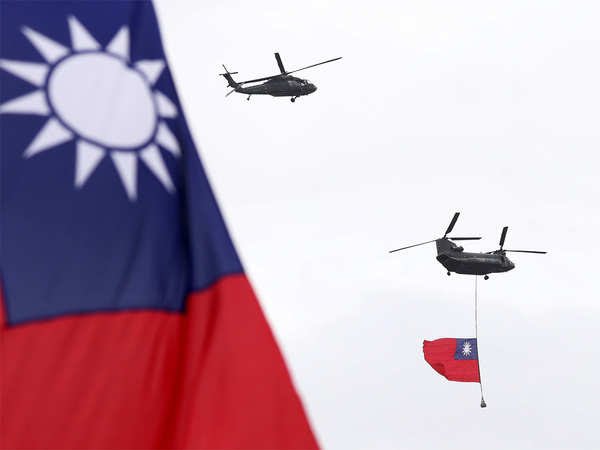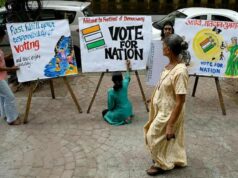Taiwan Is A Country Notwithstanding Chinese Tantrums

The more China tells the world that Taiwan isn’t a country, the more The rest of the World have started to treat it like one
Taiwan’s National Day was celebrated on Saturday. The Chinese embassy in New Delhi in an imperious manner issued a letter telling India’s media not to refer to it as a country or to Tsai Ing-wen as its president.
Indians responded by helping the hashtag #TaiwanNationalDay go viral while banners with the Taiwanese flag were hung outside the Chinese embassy.
“Hats off to friends from around the world this year, #India in particular, for celebrating #TaiwanNationalDay,” Taiwanese Foreign Minister Joseph Wu wrote in a Twitter post on Saturday.
Instead of marking Taiwan’s independence, a red line that Beijing has warned could trigger an invasion, the day commemorates a 1911 uprising in the central Chinese city of Wuhan against China’s last imperial dynasty.
That led to the creation of the Republic of China, which leader Chiang Kai-shek then brought to Taiwan seven decades ago when he fled as the Communist Party took power.
For many in Taiwan today, the Republic of China seems like a historical relic with diminishing relevance for the democracy of 24 million people.
Taiwan has long abandoned Chiang’s goal of reconquering what he knew as the mainland, and polls show that more and more Taiwanese don’t want any unification with China.
But celebrating the Republic of China is strategically useful for Tsai’s government. It allows her to sidestep the question of formal independence, avoiding a potentially devastating conflict with China while providing cover to create a distinct political and cultural identity for Taiwan — ultimately undermining President Xi Jinping’s goal of subsuming it under Communist Party rule.
Military tensions have risen in recent months, with Chinese fighter jets moving ever closer to Taiwan as the Communist Party ramps up rhetoric, warning Tsai against moves that push it further away from China.
It has been particularly angered by the Trump administration, which has stepped up weapons sales to Tsai’s government and sent over the most senior American officials to Taiwan in decades to discuss the pandemic and economic ties.
In Tsai’s address at a national day event on Saturday, she called for talks with Beijing while vowing to defend the island.
“We are willing to facilitate meaningful dialogue,” she said, adding that “showing weakness and making concessions will not bring peace.”
Hu Xijin, editor of the Communist Party-run Global Times, said the remarks were Tsai’s “softest tone” in years and “obviously less arrogant than her past remarks.” He attributed the shift to China’s increased threats of war, which his newspaper has helped disseminate.
“The Chinese mainland must maintain strong military pressure, which can be triggered at any time, over the island of Taiwan, to ensure that certain forces on the island restrain themselves,” Hu wrote.
China has long used the threat of force to intimidate Taiwan. It fired missiles into waters near the main island of Taiwan in the late 1990s simply because then-leader Lee Teng-hui was allowed to speak at Cornell University. It also expressed fury at his proposal for Taiwan and China to have “special state-to-state” relations.
Now since Doklam and Galwan incident with India, Chinese are on back foot as their bluff has been called. Now the USA too must provide full military aid to Taiwan and India must establish full diplomatic, trade and cultural relationship.
“We don’t have a need to declare ourselves an independent state,” Tsai told the BBC shortly after she was re-elected by a landslide in January. “We are an independent country already, and we call ourselves the Republic of China, Taiwan.”
Tsai’s government has sought to assert more of a Taiwanese national identity, including by redesigning passports this year to highlight the word “Taiwan” while minimizing “Republic of China.” At the same time, people who support a Taiwanese identity also take pride in Republic of China emblems such as the flag, according to Margaret Lewis, a law professor at Seton Hall University.
“The symbols from the past have taken on new and complex meaning in the present,” she said.
This broader shift doesn’t bode well for Xi’s plan to one day unite China and Taiwan, preferably through coercion rather than war. That has some observers particularly worried.
“No trend is going in the PRC’s preferred direction”.



